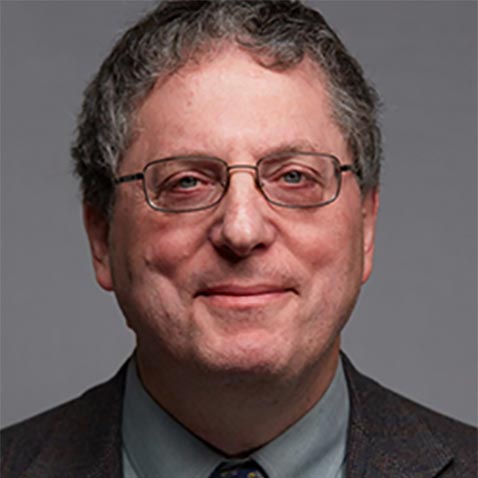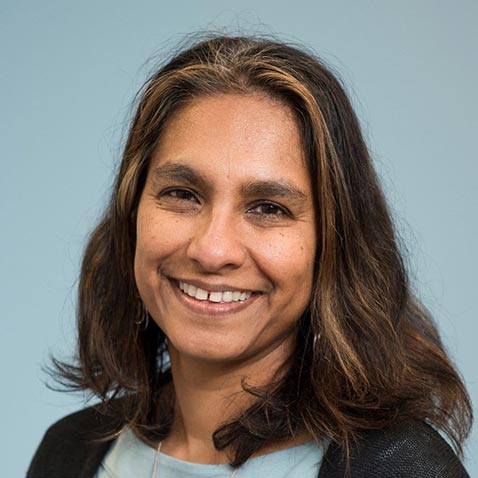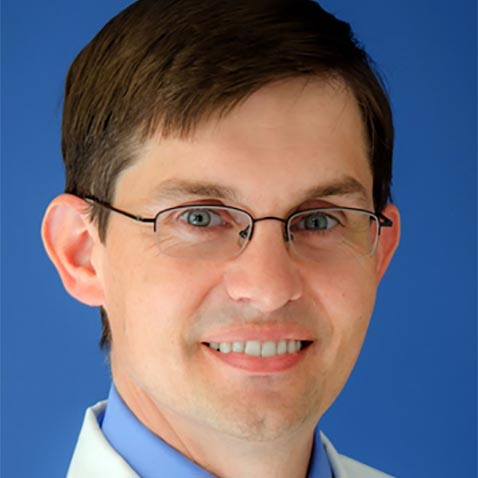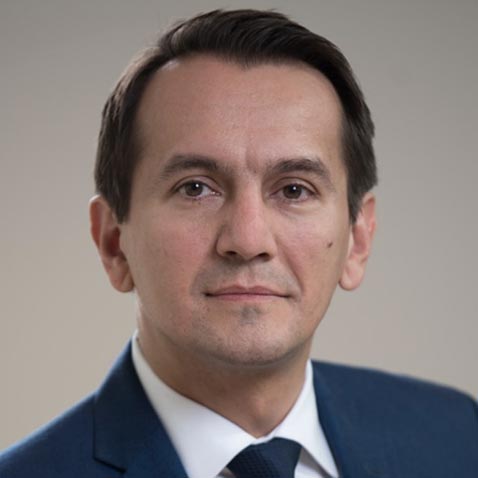On October 5, MICCAI 2020 will host the first panel with The Radiological Society of North America, a 54,000-member international society of radiologists, medical physicists and other medical professionals. The outstanding speakers will elaborate on how collaborations between clinicians and scientists facilitate the clinical success of quantitative imaging and machine learning.

Adam E. Flanders, MD, is a professor of radiology and rehabilitation medicine at Thomas Jefferson University Hospital in Philadelphia, where he has been on faculty since 1989. He also serves as co-director of the division of neuroradiology/ENT and is vice chairman of imaging informatics at Thomas Jefferson University Hospital. Dr. Flanders chairs the imaging informatics council for the enterprise radiology and imaging service line for Jefferson. He has been actively involved in informatics-related activities at the Society for Imaging Informatics in Medicine and RSNA for much of his career. Dr. Flanders has served on the RSNA education and publications council, chaired the Medical Imaging Resource Center (MIRC) subcommittee, has led the neuroradiology RadLex and reporting subcommittees for the RSNA's radiology informatics committee, is a former associate editor of informatics for RadioGraphics, is a past chair of the RSNA's radiology informatics committee and is currently the committee chair for the RSNA's digital roadmap. Dr. Flanders led a multi-specialty group that developed a set of common data elements (CDE) for spinal cord injury imaging for the National Institute of Neurological Disorders and Stroke (NINDS) and led a CDE development group for the National Cancer Institute (NCI) related to imaging features of human gliomas (VASARI feature set) that is part of the Cancer Imaging Archive (TCIA).

Jayashree Kalpathy-Cramer is the Director of the QTIM lab and the Center for Machine Learning at the Athinoula A. Martinos Center for Biomedical Imaging and an Associate Professor of Radiology at MGH/Harvard Medical School. Dr. Kalpathy-Cramer is also Scientific Director at MGB Center for Clinical Data Science, a Senior Scientist at the American College of Radiology Data Science Institute and a member of the RSNA Machine Learning Steering Sub-committee. She is an electrical engineer by training, having received a B.Tech in EE from IIT Bombay, India and a PhD in EE from Rensselaer Polytechnic Institute. Her research interests include medical image analysis, machine learning and artificial intelligence for zpplications in radiology, oncology and ophthalmology. The work in her lab at the intersection of computer science and medicine spans the spectrum from novel algorithm development to clinical deployment. She is passionate about the potential that these techniques have to improve access to healthcare in the US and worldwide. Dr. Kalpathy-Cramer has authored over 150 peer-reviewed publications and has written over a dozen book chapters. She is a Deputy Editor for the Radiology-AI journal, a journal from the Radiological Society of North America. This year, she was elected to the Council of Distinguished Investigators of the Academy for Radiology & Biomedical Imaging Research.

John Mongan, MD, PhD is an Associate Professor and Associate Chair of Translational Informatics for the Department of Radiology and Biomedical Imaging at UC San Francisco. He is a director of the UCSF Center for Intelligent Imaging (Ci2) where his research focuses on medical applications of artificial intelligence. His work on machine learning-based detection of pneumothorax was recently FDA-cleared for incorporation into a portable X-ray device, and he is the lead author on the Checklist for Artificial Intelligence in Medical Imaging (CLAIM), a guideline for manuscripts. Dr. Mongan is the in-coming Chair of the Machine Learning committee of the Radiological Society of North America. He is the lead author of Programming Interviews Exposed, now in its fourth edition and holds three computer software-related patents.

Marius George Linguraru, DPhil MA MSc loves working with multidisciplinary teams of clinicians, scientists and engineers to help children grow healthy and happy. He is Principal Investigator in the Sheikh Zayed Institute for Pediatric Surgical Innovation at Children's National Hospital in Washington, DC, where he directs the Precision Medical Imaging Group. Dr. Linguraru is also Professor of Radiology and Pediatrics and Secondary Professor of Biomedical Engineering at George Washington University. He co-founded PediaMetrix LLC, a company focused on infant well-being by creating solutions to improve the management of conditions of early childhood. He joined the Sheikh Zayed Institute from the National Institutes of Health, completed his doctorate at the University of Oxford and held fellowships at the French National Institute of Research in Computer Science (INRIA) and at Harvard University. Dr. Linguraru is the recipient of numerous awards, including a prize for Excellence in Engineering by a Younger Engineer at the Houses of Parliament in London, UK. He serves on Boards and Committees of the IEEE Engineering in Medicine and Biology Society, the IEEE Signal Processing Society and the Foundation of the International Society of Medical Information Processing and Analysis (SIPAIM). He was the General Chair of the IEEE International Symposium on Biomedical Imaging 2019 in Venice, Italy and founded the MICCAI Mentorship Program.